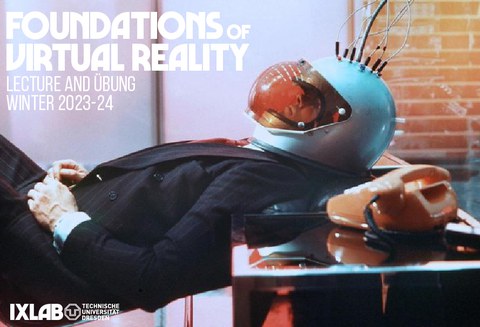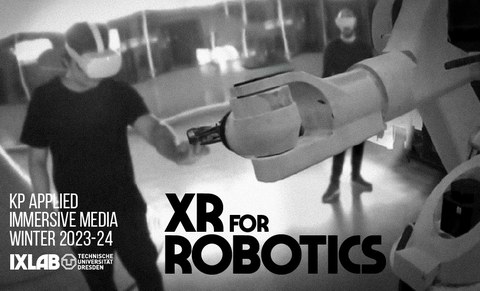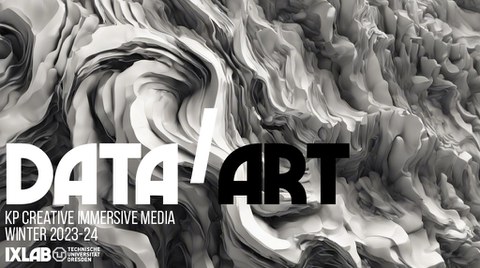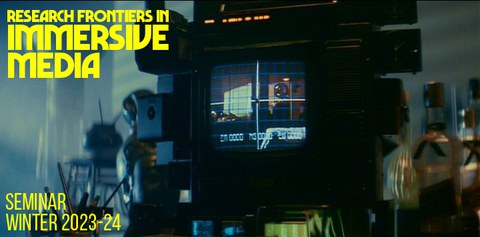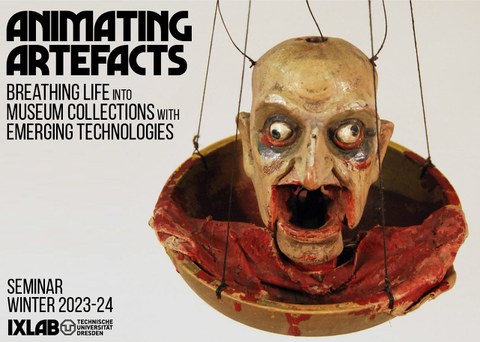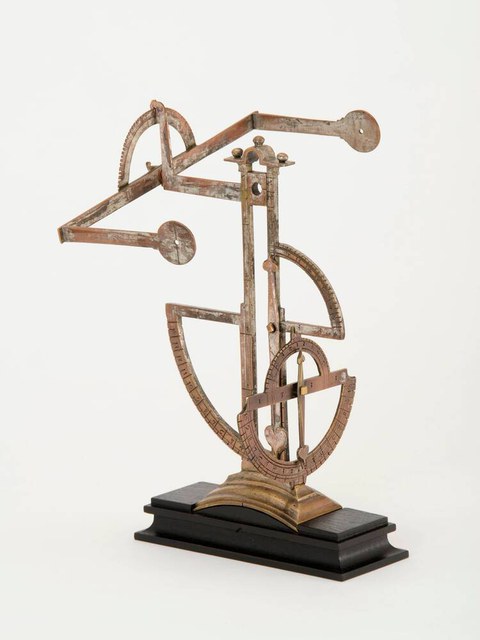[Archive] Wise23-24 Seminars, Workshops and Lectures
Winter Semester 2023-24
- Enrolment for ALL CLASSES is via OPAL. CMS students - enrolment through SELMA will not ensure you a position in a class. Please use OPAL.
- Enrolment opens Tuesday 12.9.2023 at 10H00
- For live updates on IXLAB courses and news, subscribe to the matrix room #ixlab:tu-dresden.de
-
Our classes are listed in the Course Catalog as "Gestaltung immersiver Medien" in the Institute Software- und Multimediatechnik: https://wwwdek.inf.tu-dresden.de/mole-web/catalogs/wise2324/institute/smt/schedule/de#gim
| Type | Lecture (90min per week) + Übung (90min per week) |
|---|---|
| Language | English |
| Lecturer | Matthew McGinity |
| Modules | CMS-VC-ELV1 , CMS-VC-ELV2 , INF-B-510 , INF-B-520 , INF-B-530 , INF-B-540 , INF-BAS7 , INF-VERT3 , INF-VERT7 , INF-VMI-1 , INF-VMI-1A , INF-VMI-8A |
| Assessment | Exam format depends on module. Written exam: B-510/520/530/540, VMI-1a, CMS-VC-ELV1 and ELV2 Oral exam: VM1-8A, BAS7, VERT-3, VERT-7 |
| Time & Place |
Thursdays, 3. DS. (11:10 - 12:40). Raum SCH/A117/H (Georg-Schumann-Bau Flügel A Gerichtsgeb., Münchner Pl. 3) https://navigator.tu-dresden.de/etplan/sch/01/raum/145701.0110 |
| Enrolment | OPAL: https://bildungsportal.sachsen.de/opal/auth/RepositoryEntry/41207496717?12 |
Foundations of Virtual Reality provides a broad overview of the foundational theories, concepts and technologies involved in virtual reality. Topics covered include:
- Definitions and history of immersive media
- Active and spatial perception - vision, hearing, touch, somatic senses
- Stereo, head-tracked images and head-mounted visual displays
- 3D tracking technologies - noise, filtering, drift
- Sonic and haptic displays
- Interaction, locomotion and navigation in virtual spaces
- Software and application design for real-time VR
- Embodiment, social presence, measuring immersion
Tutorials will provide hands-on introduction to these topics using WebGL, Threejs and Unity.
| Type | Practical Course / Komplexpraktikum (0|0|4) |
|---|---|
| Language | English |
| Lecturers | Matthew McGinity, Krishnan Chandran, Zhongyuan Yu |
| Modules | B-510, B-520, B-530, B-540, VMI-1(A), VMI-4A, VMI-6, VMI-8(A), E-4, VERT-3, VERT-7, MA-PR, VC-ELV1, VC-ELV2 |
| Assessment | Presentation, report and final project |
| Location | E0046 APB |
| Time | TBD |
| Enrolment | OPAL: https://bildungsportal.sachsen.de/opal/auth/RepositoryEntry/41207496717/BusinessGroup/41206284330 |
XR for Robotics
Extended Reality (XR) interfaces for controlling, interacting and communicating with robots.
In this project we explore the union of immersive media and robotics, asking how immersive interfaces might be used to support human robot communication and interaction.
We will examine the use of multi-user mixed reality (MR) in the testing and training of robots and other autonomous machines, with a particular focus on contexts that involve human-robot interaction and cooperation. We will explore how MR can be used to display, in situ, what a robot "sees" and "thinks"; how it perceives and understands its environment and to communicate its reasoning, goals and plans. We will also explore how MR can be used to interact and communicate with a robot, and approach the problem of "explainability" in AI and robotics from the perspective of human-computer interface design.
Students will use Unity and video-passthrough head-mounted displays (Oculus Quest). We will build on the multi-user mixed-reality platform developed within IXLAB (https://doi.org/10.1109/TVCG.2023.3299781).
Prequisites: Knowledge of computer graphics and object-oriented programming required. Experience with Unity and 3D modelling software is beneficial.
| Type | Practical Course / Komplexpraktikum (0|0|4) |
|---|---|
| Language | English/German |
| Lecturers | Brian Eschrich, Matthew McGinity |
| Modules | B-510, B-520, B-530, B-540, VMI-1a, VMI-4a, VMI-6, VMI-7, VMI-8a, E-4, VERT-3, VERT-7, MA-PR, VC-ELV1, VC-ELV2 |
| Assessment | Presentation, report and final project |
| Location | E0046 APB |
| Time | Thursday 5DS (14:50-16.20) |
| Enrolment | OPAL: https://bildungsportal.sachsen.de/opal/auth/RepositoryEntry/41207496717/BusinessGroup/41206284330 |
Data Art
The TU Dresden ZIH supercomputer cluster is used for data analytics, machine learning and processing of large data sets. All these processes take place beyond view, unnoticed in a giant, windowless concrete cube.
In this Komplexpraktikum, we explore ways of visualising the processes and computations unfolding in the supercomputer. Drawing inspiration from "data" and "algorithmic" artists such as Ryoji Ikeda, OpenEndedGroup, Andy Lomas, Nathalie Miebach or Refik Anadol, we explore visualisations that explain, inspire, provoke or awe, transforming abstract data into visceral, tangible or spatial forms or structures.
Projects may be screen-based, projections or VR or MR experiences, or sonic or haptic. Students work in small groups mostly hands-on and will have an even mix of theoretical work (background research), ideation (prototyping and mockups) and practical work (software development).
Prequisites
Good knowledge of computer graphics. Familiarity with some form of visual computing platform is highly beneficial (e.g. Unity, Unreal, WebGL, Cinder, Openframeworks, Blender, Houdini, Maya etc.etc...).
| Type | Pro-/Haupt- Seminar (0|2|0) |
|---|---|
| Language | English |
| Lecturer | Matthew McGinity |
| Modules |
Pro: INF-B-610 , INF-D-520 |
| Assessment | Presentations, Documentation |
| Date&Place | Thursdays, 6. DS. (16:40 - 18:10). APB E010 |
| Enrolment | https://bildungsportal.sachsen.de/opal/auth/RepositoryEntry/36533665795/BusinessGroup/36530389006 |
This seminar has three major components. The first is an introduction to academic research methodologies and tools, such as search strategies and tools, managing a bibliography, academic writing styles, ciations and avoiding plagiarism. In short, you will learn how to find, read, analyse and write academic texts.
The second component is a discussion of philosophical, historical, ethical, social and political implications of media technologies, and computing technology in general. We will discuss selected writings and films from such authors as Alan Turing, Norbert Wiener, John Searle, Nic Bostrom, Stanislav Lem, Jaron Lanier, Hubert Dreyfus and E.M. Forster.
The third component is an introduction to current research frontiers in the field of immersive technologies. This includes such topics as perceptual theory, real-time rendering and simulation, embodied virtual agents and AI, world capture and virtual world building, 3D user interfaces and emerging applications, such as psychiatry, education and journalism. Students will perform their own literature review on a topic of their choice and present their results to their fellow students in class.
This semester we will be using science fiction for inspiration. Students will select a fictional computing technology or interface from film or literature, and then perform an analysis and review of the relevant science needed to make it a reality.
This seminar is well suited for students intending to write a bachelor or master thesis in the field of immersive media. Students will be given the opportunity to select and refine a thesis topic, familiarise themselves with the relevant technologies, and then prepare extensively the theoretical and technical components of the thesis. However, it can also be taken by students not in this category.
Seminar structure:
- Weekly meetings
- Student presentation, student-led discussions and close readings of research papers
- Student-led "reading group"
Tasks and assesment:
- Write literature review paper on a specific research topic.
- Class presentation.
| Type | Pro-/Haupt- Seminar (0|2|0) |
|---|---|
| Language | Deutsch (primarily) / English |
| Lecturer | Ingmar Franke |
| Modules |
Pro: INF-B-610 , INF-D-520 |
| Assessment | Presentation and Paper |
| Date&Place | Wednesday, 13:00 (Present/Digital) |
| Enrolment | https://bildungsportal.sachsen.de/opal/auth/RepositoryEntry/41207496717/BusinessGroup/Overview?5 |
A particular challenge in the world of museums is the archiving, documentation and presentation of artefacts and objects whose value and purpose is only revealed when they are performed or used. For example, the purpose of a scientific instrument or a craftmans tool may only be apparent when it is in motion. The value and use of toys, ritual objects or kinetic works of art can often only be understood in terms of their dynamics and interactivity. This is particularly true for artefacts that involve artistic or playful performance, such as musical instruments, tools for artmaking, toys or puppets. Moreover, it may be that only when we use something ourselves, with our own hands, do we truly understand it.
However, for conversation reasons, such objects are typically exhibited "dead", completely inert and beyond the audiences grasp. Like this, they often lose all meaning.
In this seminar, we will investigate methods for capturing, documenting and presenting dynamic and mobile artefacts. We will examine the state-of-the-art in museology, and then ask how emerging immersive and interactive technologies might be used to bring museum artefacts back to life. How can the performance of an artefact be captured for future generations, and how might we recreate long lost performances of historical artefacts? How might we let people use virtual replica of such artefacts?
In this seminar you will perform a design analysis of the challenges involved in mobile museum artefacts and propose creative solutions based on emerging technologies.
Students will work in small teams.
The seminar includes guest lectures from partners at the Staatliche Kunstsammlungen Dresden and the Dresden Puppentheatersammlung and field trips to collections of the Dresden museums.
| Type | Research Project (0|0|8 or 12) |
|---|---|
| Language | English |
| Modules | Bachelor and Master Theses, Gross Beleg and individual and team research projects INF-PM-FPA, INF-PM-FPG, INF-D-960, CMS-PROJ, CMS-VC-TEA |
| Assessment | Presentations, Documentation and final Project |
| Date&Place | ongoing |
| Enrolment |
IXLAB is offering a range of individual and group Research Projects in the field of immersive media. Topics include theoretical and perceptual factors, technical challenges, design and interaction issues and novel applications of different manifestations of virtual and augmented reality. Application fields include archaeology, architecture, data visualisation, geospatial science, physiotherapy or psychotherapy, museums and libraries, music and film production, journalism or education and training.
Projects are available for all levels: Bachelor and Master Theses, Gross Beleg and individual and team research projects INF-PM-FPA, INF-PM-FPG, CMS-PROJ, CMS-VC-TEA
See here for example Research Projects
Timetable (to be finalised)
| Mon | Tue | Wed | Thu | Fri | ||
|---|---|---|---|---|---|---|
| 1. DS | 07:30 - 09:00 | |||||
| 2. DS | 09:20 - 10:50 | |||||
| 3. DS | 11:10 - 12:40 | Foundations of VR Lecture |
||||
| 4. DS | 13:00 - 14:30 | Seminar Animating Archives | ||||
| 5. DS | 14:50 - 16:20 | Foundations of VR Tutorial A & C |
KP XR Robotics | KP Creative Immersive Media | ||
| 6. DS | 16:40 - 18:10 | Foundations of VR Tutorial B |
Seminar Immersive Media |
KP - Komplexpraktikum
Modules
| Bachelor | Master & Diplom | ||||
|---|---|---|---|---|---|
| SWS | Informatik & Medien-informatik | Medien-informatik | Informatik | CMS | |
| Komplexpraktikum Creative Immersive Media | 0|0|4 | B-510 B-520 B-530 B-540 |
VMI-1A VMI-4A VMI-6 VMI-8A E-4 |
VERT-3 VERT-7 MA-PR |
CMS-VC-ELV1 CMS-VC-ELV2 |
|
Pro-/Haupt Seminar |
0|2|0 | B-610 | AQUA | AQUA D-520|-940 |
CMS-SEM |
| Pro-/Haupt Seminar Animating Museum Artefacts |
0|2|0 | B-610 | AQUA | AQUA D-520|-940 |
CMS-SEM |
| Komplexpraktikum Applied Immersive Media | 0|0|4 | B-510 B-520 B-530 B-540 |
VMI-1A VMI-4A VMI-6 VMI-8A E-4 |
VERT-3 VERT-7 MA-PR |
CMS-VC-ELV1 CMS-VC-ELV2 |
| Research Project Immersive Media |
0|0|8 |
PM-FPA |
CMS-VC-TEA | ||
| CMS Research Project Immersive Visualisation |
0|0|12 | CMS-PRO | |||
| Lecture + Übung Foundations of Virtual Reality | 2|2|0 | B-510 B-520 B-530 B-540 |
VMI-1A VMI-8A | BAS7 VERT-3 VERT-7 | CMS-VC-ELV1 CMS-VC-ELV2 |

